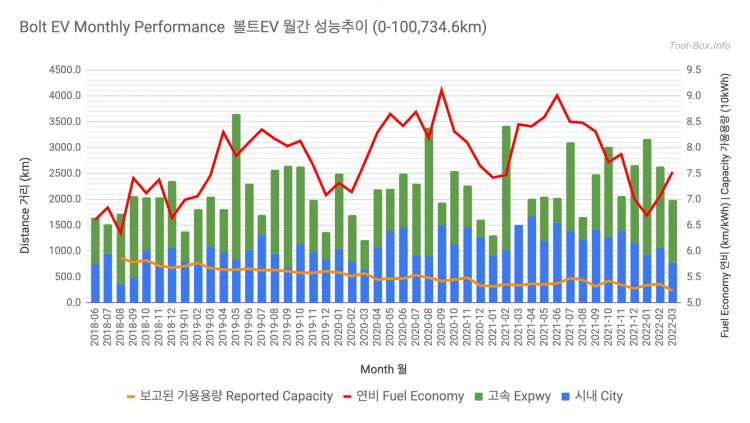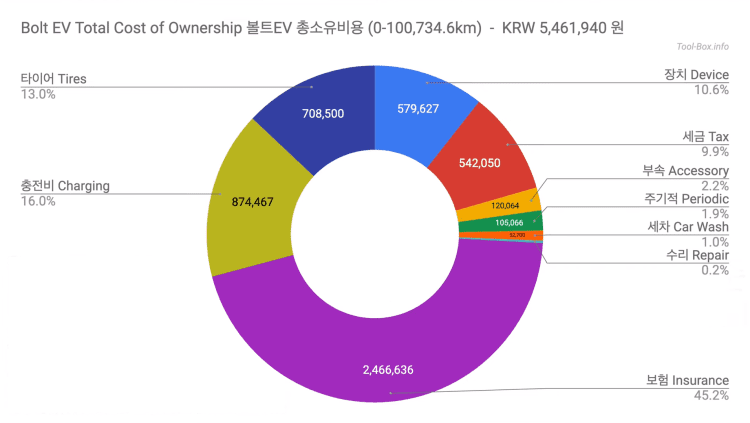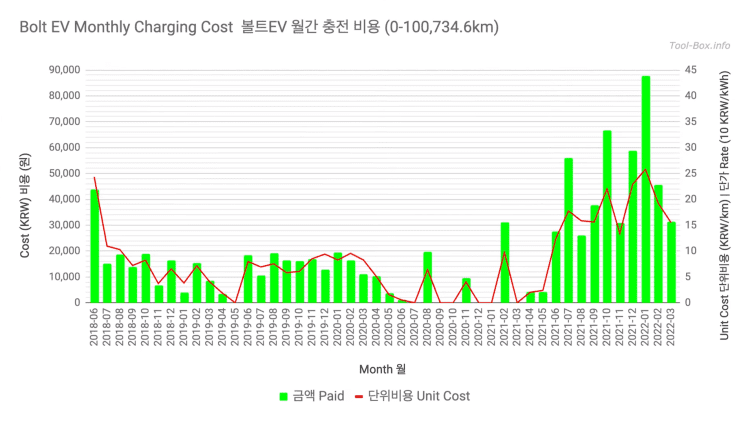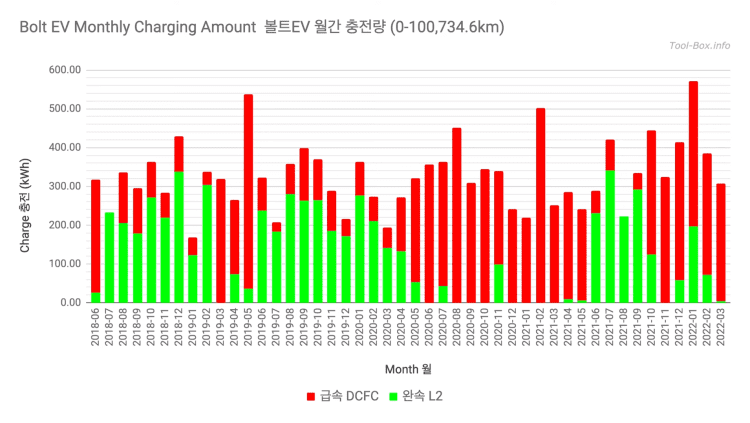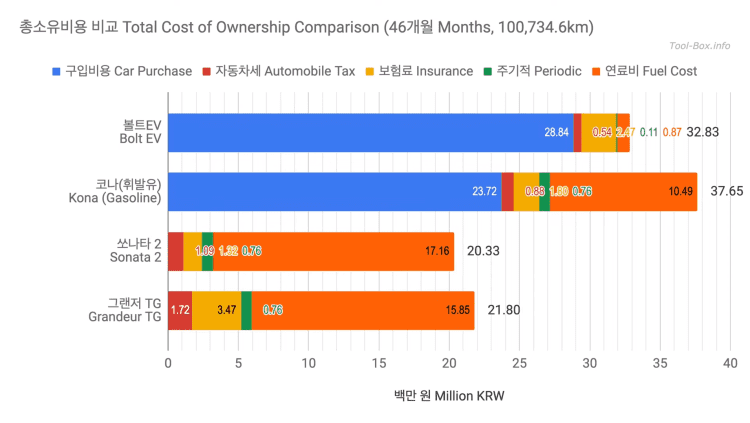Bolt EV's economic relevance at 100,000km
Posted by Wesley onOn March 27, 2022, after nearly 46 months of driving, my Bolt EV's odometer hit 100,000km. Considering that it isn't used for commuting most of the time, this is a relatively quick achievement. Of the 100,734.6km driven in 46 full months, 48,588.7km was done in the city while the remaining 52,145.9km was on the expressways, so at 48:52 ratio it's got a balanced use. As for the efficiency, the car spent 13,016.1kWh, so that translates to 7.74km/kWh overall. It's well over the official numbers, so that shows how conservative I drive.
During this time, I spent KRW 5,461,940 (about US$4,440) on the car, excluding toll. Interestingly, the insurance and the tax accounted for more than half of the total. This reflects how relatively little I need to pay for the charging and maintenance. In fact, I spent just KRW 874,467 (US$710) for charging, which is less than 1/6 of the total. And other than the tires, the periodic maintenance costs were insignificant.
There's a good reason why I spent so little on charging.
Until June 2020, EV chargers were subject to the government's discount pricing policy and made AC slow (a.k.a. L2) chargers quite cheap to use - averaging at just KRW 6.55 / km. And between May 2020 and May 2021, I was able to make use of the free DC fast chargers operated by the Ministry of Environment and the cost went down to KRW 2.55 / km. Those perks are now gone, so I now use DCFC with a subscription to keep the cost hike down. I have to pay about KRW 20 / km on average these days, but thanks to the discounts in the earlier days the lifetime average is KRW 8.68 / km.
You can see here that I relied mostly on the slow chargers earlier on, but shifted to fast chargers later. This coincides with the times when I got to use the free or subscribed fast chargers. In the end, I charged 8,977.62kWh on the fast chargers, and just 6,113.65kWh on the slow ones, for a 60:40 ratio. Total of 15,091.17kWh indicates that the charging efficiency was 86.2% when compared to how much the car spent.
So what does all this mean for the economics of driving this electric vehicle after nearly four years? It turns out that, if you take the key factors contributing to TCO into account, it's already ahead of Hyundai Kona's internal combustion engine version despite the higher initial cost mostly due to the incredibly low charging costs. While it still doesn't yet beat keeping the old cars (the 1993 Sonata 2 and 2010 Grandeur TG) the actual higher repair and maintenance costs not shown here would likely to close the gap quite soon.
If you're interested in the a more detailed analysis, please check out the video below.
